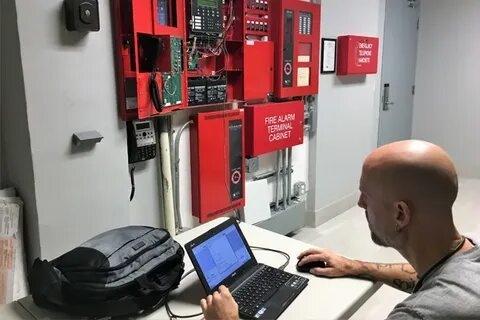A reliable alarm system is one of the most important investments a homeowner can make. However, installing an alarm system is only the first step. To ensure maximum protection, homeowners must prioritize both alarm system monitoring and alarm system maintenance. Together, these practices provide continuous security, reduce vulnerabilities, and ensure a rapid response to potential threats.
This guide explains everything you need to know about monitoring, maintenance, and best practices for keeping your alarm system functioning optimally.
Understanding Alarm System Monitoring
Alarm system monitoring is a service that keeps an active watch over your security system. When an alarm is triggered, monitoring services can:
-
Notify the homeowner immediately through phone, text, or app alerts
-
Alert local authorities, such as police, fire, or medical responders
-
Activate sirens or deterrent devices to prevent or stop intrusions
-
Maintain detailed logs of events for future review or investigation
With professional monitoring, your property is protected 24/7, even when you are away. This rapid-response capability ensures peace of mind and enhances safety.
Understanding Alarm System Maintenance
Alarm system maintenance refers to the regular inspection, testing, and servicing of all components of your security system. Essential maintenance tasks include:
-
Sensor and alarm testing – Ensuring door, window, and motion sensors are working properly
-
Battery and power checks – Replacing primary and backup batteries to prevent system failures
-
Wiring inspections – Detecting damage, corrosion, or loose connections
-
Software and firmware updates – Maintaining device security, compatibility, and performance
-
Professional inspections – Certified technicians identify potential weaknesses and optimize system operation
Regular maintenance keeps your system functional and ensures that monitoring services can respond effectively in emergencies.
Why Monitoring Alone Is Not Enough
Even with 24/7 monitoring, your system is only as effective as its components. Without proper maintenance, several issues can occur:
-
Sensor Failures – Dust, debris, or wear can prevent motion or entry detection
-
Dead Batteries – Backup or primary batteries can fail without regular replacement
-
False Alarms – Misaligned or faulty sensors trigger unnecessary alerts, reducing response efficiency
-
Connectivity Issues – Poorly maintained wiring or network problems can prevent alerts from reaching monitoring services
Neglecting maintenance can compromise monitoring, leaving your home vulnerable to threats.
Top Benefits of Alarm System Maintenance
-
Continuous Protection – Ensures all sensors and alarms function correctly at all times
-
Reliable Monitoring – Monitoring services can respond accurately and promptly
-
Reduced False Alarms – Proper calibration minimizes unnecessary alerts
-
Extended System Lifespan – Routine upkeep prevents wear and reduces repair costs
-
Peace of Mind – Confident that your home is secure and functioning optimally
Real-World Examples
Homeowner Scenario:
Emma’s home alarm system had not been serviced for over a year. One night, a door sensor failed due to a dead battery, and her monitoring service did not receive an alert. After scheduling routine maintenance, all sensors were tested, batteries replaced, and system performance optimized. This ensured her home remained protected around the clock.
Business Scenario:
A small office installed an alarm system but skipped maintenance. Motion detectors became misaligned, causing frequent false alarms and delayed monitoring responses. After a professional inspection, the system was recalibrated and integrated with monitoring services. The business now enjoys reliable, accurate alerts and full coverage.
Best Practices for Homeowners
-
Schedule Routine Maintenance – At least once or twice a year, have certified technicians inspect your system
-
Test Your System Monthly – Check alarms, sensors, and notifications to ensure they work properly
-
Replace Batteries Regularly – Even backup batteries require attention to prevent failures
-
Keep Software Updated – Ensure devices run the latest firmware for security and compatibility
-
Coordinate with Monitoring Services – Inform your provider of maintenance schedules to optimize responsiveness
Combining Monitoring and Maintenance for Maximum Security
The most effective alarm system strategy involves both professional monitoring and regular maintenance. Together, they provide:
-
Reliable real-time alerts when incidents occur
-
Continuous functionality of sensors and alarms
-
Reduced risk of system failures or false alarms
-
Extended equipment lifespan
-
Peace of mind knowing your home is fully protected
By prioritizing both monitoring and maintenance, homeowners ensure their alarm systems perform at peak efficiency.
Final Thoughts
Investing in alarm system maintenance without proper maintenance is like owning a high-performance car and never changing the oil—it won’t function reliably when you need it most. Regular maintenance ensures that your system is reliable, responsive, and fully capable of protecting your home and loved ones.
Homeowners who combine professional monitoring with consistent maintenance enjoy continuous protection, rapid response, and long-term peace of mind. For anyone seeking maximum security, this combination is essential—not optional.



